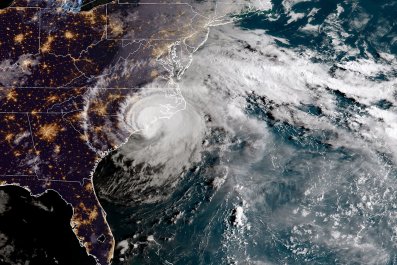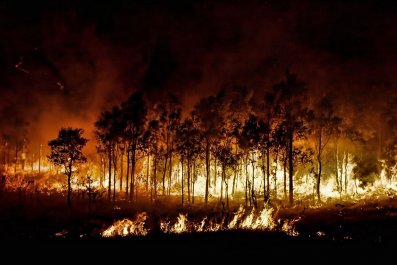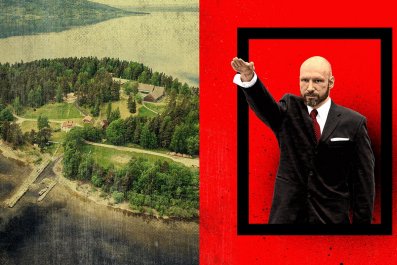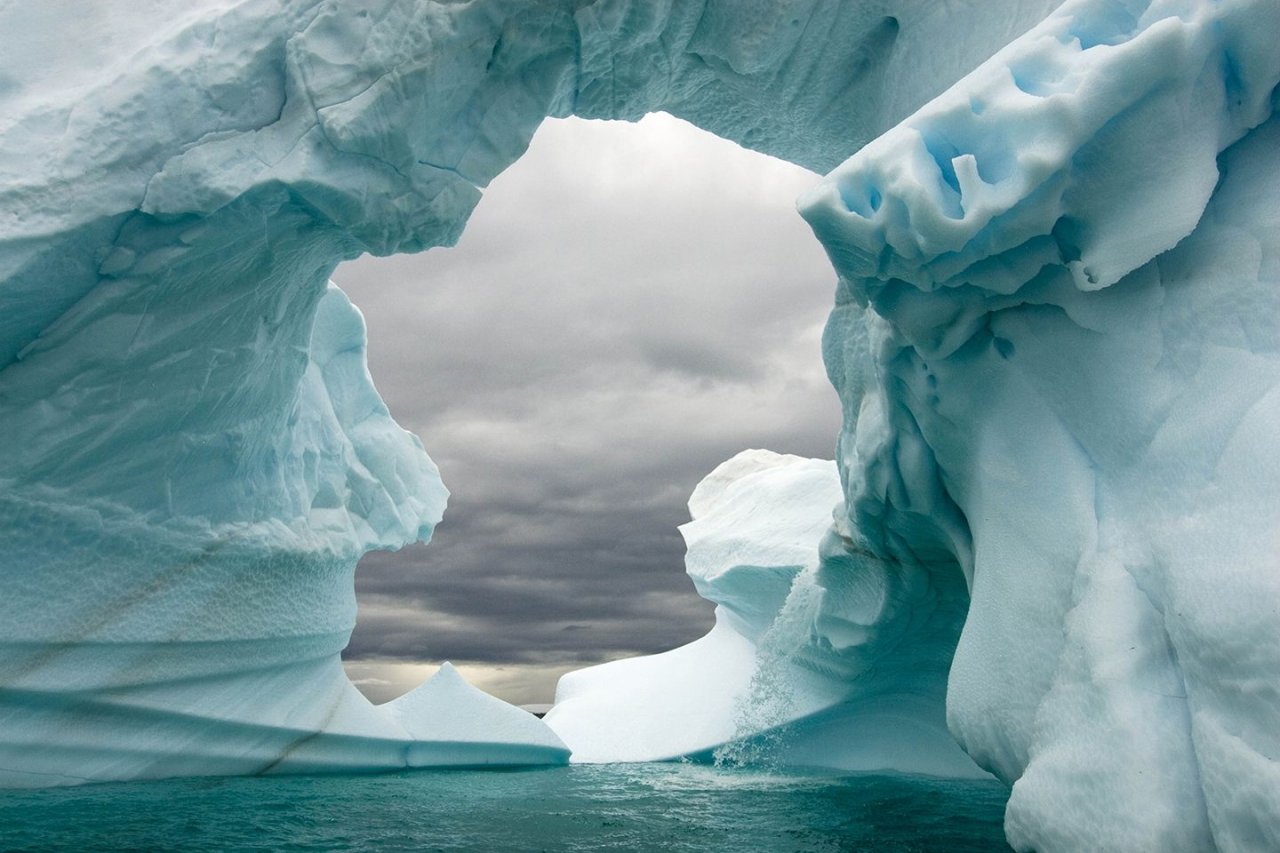
As Hurricane Florence took hold of the Carolinas in mid-September, partisan talk swirled like the winds.
House Minority Leader Nancy Pelosi blamed the Trump administration for listening to "naysayers" who didn't want to switch to clean energy. Fossil fuels, she told reporters, absolutely contributed to the severity of the hurricane: "This is something that we have to look at in a big way, and it's not served by denial of the facts."
Former Vice President Al Gore weighed in from a climate conference in San Francisco. "Every night on the television news is like a nature hike through the Book of Revelation, and we've got to connect the dots between the cause and the effect," he said. "Some people evidently can still deny the reality [of climate change]—it's a little bit harder to deny the 3,000 deaths in Puerto Rico from Hurricane Maria last year."
Rush Limbaugh used his radio show to fight back against what he called fearmongering. "This is made to order for the climate change–global warming crowd," he said. "Hurricanes and hurricane forecasting is like much else that the left has gotten its hands on, and they politicize these things."
He's right, at any rate, that the topic is deeply politicized. A recent Gallup poll showed a gaping partisan divide on environmental policy: 69 percent of Republicans said they were satisfied with the current state of the environment, while 67 percent of Democrats said they were dissatisfied.
All of this feeds a self-perpetuating narrative that Americans' views on climate change are split straight down the aisle—and are irreconcilable.
"You've got the Democrats who run out there and blame a specific weather event on climate change, and then you have someone like Republican Senator Jim Inhofe who will throw a snowball in the Senate to prove climate change isn't real," said Ford O'Connell, a Republican strategist and former McCain-Palin presidential campaign adviser. "Both sides call up the carnival barkers, and nothing gets done."
But Democrats and Republicans have more in common than they might think.
A July 2018 study by Leaf van Boven, a psychology and neuroscience professor at the University of Colorado Boulder, and David Sherman, at the University of California, Santa Barbara, found that most Republicans did believe that climate change was real. The surveyed group also said human activity was largely responsible for it, that it threatened humans, and that reducing greenhouse gas emissions would help curb it.
Recent polls support these findings. The University of Michigan and Muhlenberg College found in May that a record 73 percent of all Americans believed there was "solid evidence" of climate change, while 60 percent thought that climate change was "happening" and that humans were "at least partially responsible for rising temperatures." A May study from the Pew Research Center found that 59 percent of Americans said climate change was currently affecting their local community.
"I think this summer may have been a tipping point in the public consciousness," Michael Mann, director of the Earth System Science Center at Pennsylvania State University, said. "The impacts of climate change are no longer subtle. They're staring us in the face."
Man-made climate change was a reality that scientists had been warning about for decades, but the deadly onslaught of hurricanes Maria, Irma and Harvey last year, followed by this year's Hurricane Florence, had made the problem personal, said Eric Holthaus, meteorologist and staff writer at Grist, an environmental news website. "At this point, we should look at it as a human problem, not a scientific problem. Florence is affecting both Republicans and Democrats in North Carolina," he said.
Still, there's a disconnect between privately held views and political posturing, the Van Boven study indicated. When surveyed, both Democrats and Republicans underestimated Republicans' belief in climate change. The study suggested that the discrepancies were likely the result of a media landscape that emphasized conflict.
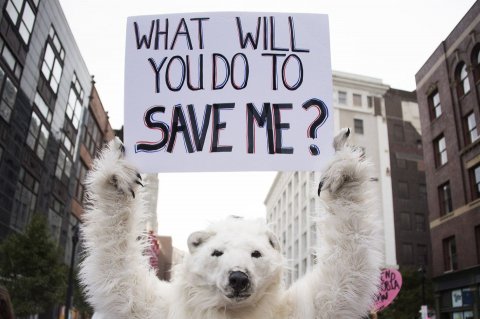
These amplified perceptions of partisan differences were self-fulfilling. In other words, Republicans didn't support climate policy because they didn't think other Republicans supported climate policy, or because they thought Democrats did.
"Our research suggests that Democrats and Republicans are driven by partisanship because they believe that their fellow Democrats or Republicans are even more driven by partisanship— and they don't want to break across the party line," said Van Boven. "Because people think others are extremely partisan on climate change, they are more partisan themselves, and this makes it harder to reach across the aisle."
Bob Inglis, a six-term GOP representative from South Carolina's 4th District, long hewed to his party's line on climate change. The overwhelming scientific consensus that the planet was heating up due to human action, he thought, was a bunch of "hooey."
Inglis told Newsweek he didn't understand the science behind it, and he didn't care to. "All I knew was that Al Gore was for it, and so I was against it," he said.
He wasn't the only one with that reaction. The scientific jargon that surrounds discussions of climate change policy may make the topic more vulnerable to political pressure. "When people don't know much about an issue, and they're strong partisans, they tend to listen to their leaders," said Anthony Leiserowitz, director of the Yale Project on Climate Change at the university's School of Forestry and Environmental Studies. "And if leaders say it's a hoax, people believe it's a hoax."
But Inglis joined the House Committee on Science and Technology in 2004, and on a congressional trip to Antarctica, he saw the iceberg drillings that indicated a rapid increase in atmospheric carbon dioxide, a heat-trapping gas that warms the planet. In Australia, he visited the Great Barrier Reef and saw coral bleaching up close, another sign of rising temperatures.
In 2009, Inglis introduced legislation to impose a revenue-neutral carbon tax on producers and distributors of fossil fuels. But his scientific awakening came at a price: In 2010, a Tea Party candidate, Trey Gowdy, challenged him in the Republican primary, and Inglis lost his seat.
"The most enduring heresy was just saying that climate change was real," he told Climatewire after his loss. "That was the one that was most damaging, I'm convinced. For many conservatives, it became the marker that you had crossed to Satan's side—that you had left God and gone to Satan's side on climate change."
The consequences of climate change threaten members of both parties, and the Republican leadership knows this, Inglis told Newsweek: They just have trouble acting on it. When he was in Congress, "there was always someone who would try to silence anyone who spoke out about climate change," he said. "But privately, Republicans realize we need to do something."
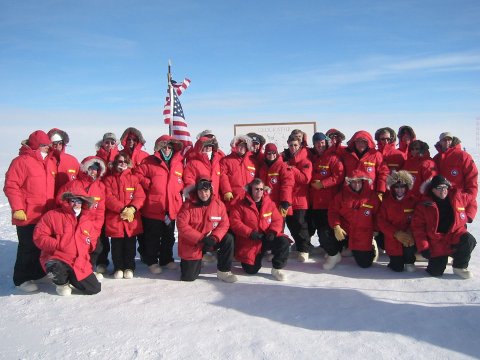
The problem, said GOP strategist O'Connell, was that in solidly red states a lot of jobs relied on the energy industry. Republicans thought they couldn't be re-elected if they told their constituents, "Let's kill your jobs," he said.
Preventing climate change wasn't an easy issue to campaign on in any case, said Greg Carlock, senior adviser at Data for Progress, a liberal think tank, and author of the "Green New Deal," a progressive package of policy initiatives that aimed to achieve environmental sustainability and economic stability. "There is not a great feedback loop between investments in climate change and resiliency because it's a long-term thing," he said. "It's difficult to turn that into a campaign message."
But there's no negotiating with a hurricane. "The climate system doesn't care if you're a Republican or a Democrat," said Leiserowitz. "You're seeing some Republicans stepping up to say that they can no longer deny reality and 'If we don't do something, Democrats are going to use their proposals instead of ours.'" The support from the Republican base is there, but leaders need to follow suit, he added.
After Inglis lost his re-election campaign, he founded republicEn, an advocacy group for free-enterprise solutions to climate change. "When I introduced that bill in 2009, there were no groups to come and rally in favor of it," he said. He wanted to change that.
In July, Representative Carlos Curbelo, a Florida Republican, introduced a carbon tax bill; his Miami-area district includes the Florida Keys, which have been ravaged by storms and rising sea levels. "I truly believe that one day this bill, or legislation similar to it, will become law," he said at a forum in Washington, D.C. "It will spark an important debate about investing in our country's infrastructure, the way we tax and what to do to protect the environment." Inglis is now working to rally Republican support on its behalf.
Progress is slow, but it's there.
During a 2014 North Carolina GOP Senate debate, a simple question was posed to all four candidates: Is climate change a fact? The audience laughed, and the responses took all of 14 seconds: "No," "No," "No" and "No."
This August, North Carolina Senator Thom Tillis, the Republican who won that 2014 primary, sat down with a Charlottesville news station to explain that human factors did affect climate change and it was necessary to advocate for policies to address the issue.
"I think we have to come up with several strategies to recognize reality," he said. "We're going to have to adapt."





